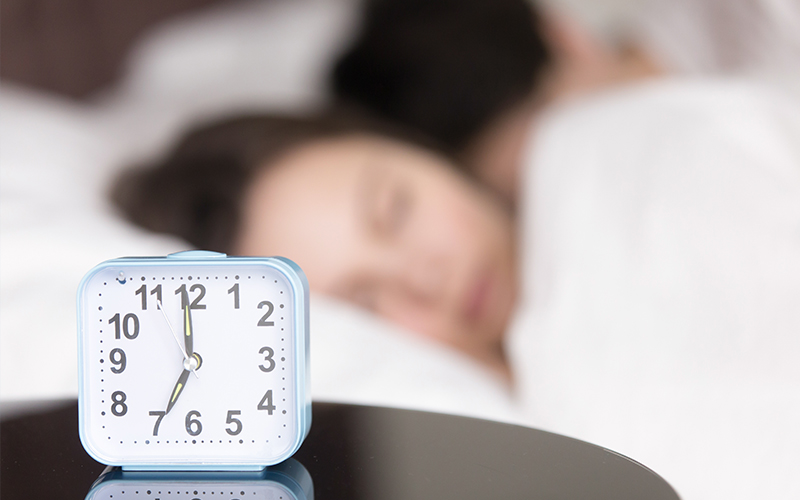Sleep Circadian Rhythm

Sleep is a fundamental aspect of human biology, essential for physical health, cognitive function, and emotional well-being. Central to the regulation of sleep is the circadian rhythm, an internal biological clock that governs the timing of sleep and wakefulness over a 24-hour period. Emerging research highlights the intricate relationship between the sleep circadian rhythm and mental health, underscoring the importance of maintaining a balanced sleep-wake cycle for psychological well-being.
The circadian rhythm is regulated by the suprachiasmatic nucleus (SCN) in the brain, which responds to environmental cues such as light and darkness to synchronize the body's internal clock with the external world. This synchronization influences various physiological processes, including hormone secretion, body temperature, and metabolism, all of which play a role in regulating sleep and wakefulness.
Disruptions to the circadian rhythm, whether due to shift work, jet lag, or irregular sleep patterns, can have profound effects on mental health. Research has shown that individuals with irregular sleep-wake cycles are at increased risk of developing mood disorders such as depression and bipolar disorder. The dysregulation of circadian rhythms can disrupt the balance of neurotransmittters such as serotonin and dopamine, which are implicated in mood regulation.
Moreover, disturbances in the circadian rhythm have been linked to anxiety disorders, including generalized anxiety disorder and panic disorder. The heightened arousal and vigilance associated with anxiety can disrupt sleep patterns, leading to a vicious cycle where sleep disturbances exacerbate anxiety symptoms, and vice versa.
The influence of the circadian rhythm on mental health extends beyond mood and anxiety disorders to include conditions such as schizophrenia and attention deficit hyperactivity disorder (ADHD). Studies have shown that individuals with schizophrenia often exhibit disruptions in their circadian rhythms, which may contribute to the severity of psychotic symptoms. Similarly, individuals with ADHD often experience difficulties with sleep onset and maintenance, which can exacerbate symptoms of inattention and hyperactivity.
Understanding the bidirectional relationship between the sleep circadian rhythm and mental health is crucial for developing effective interventions. One promising approach is chronotherapy, which involves manipulating the timing of sleep and wakefulness to realign the circadian rhythm with the desired sleep-wake schedule. Light therapy, in particular, has shown promise in treating circadian rhythm disorders such as delayed sleep phase disorder and seasonal affective disorder.
In addition to chronotherapy, lifestyle modifications such as maintaining a consistent sleep schedule, avoiding exposure to artificial light at night, and engaging in relaxation techniques before bedtime can help support a healthy circadian rhythm and promote better mental health. Incorporating regular physical activity and exposure to natural sunlight during the day can also help reinforce the body's internal clock and improve sleep quality.
In conclusion, the sleep circadian rhythm plays a critical role in shaping mental health outcomes, influencing mood, anxiety, and cognitive function. By recognizing the importance of maintaining a balanced sleep-wake cycle and implementing strategies to support the circadian rhythm, individuals can foster better mental well-being and improve overall quality of life. Further research into the mechanisms underlying the relationship between sleep and mental health is essential for developing targeted interventions and improving treatment outcomes for individuals affected by sleep circadian rhythm disturbances.








